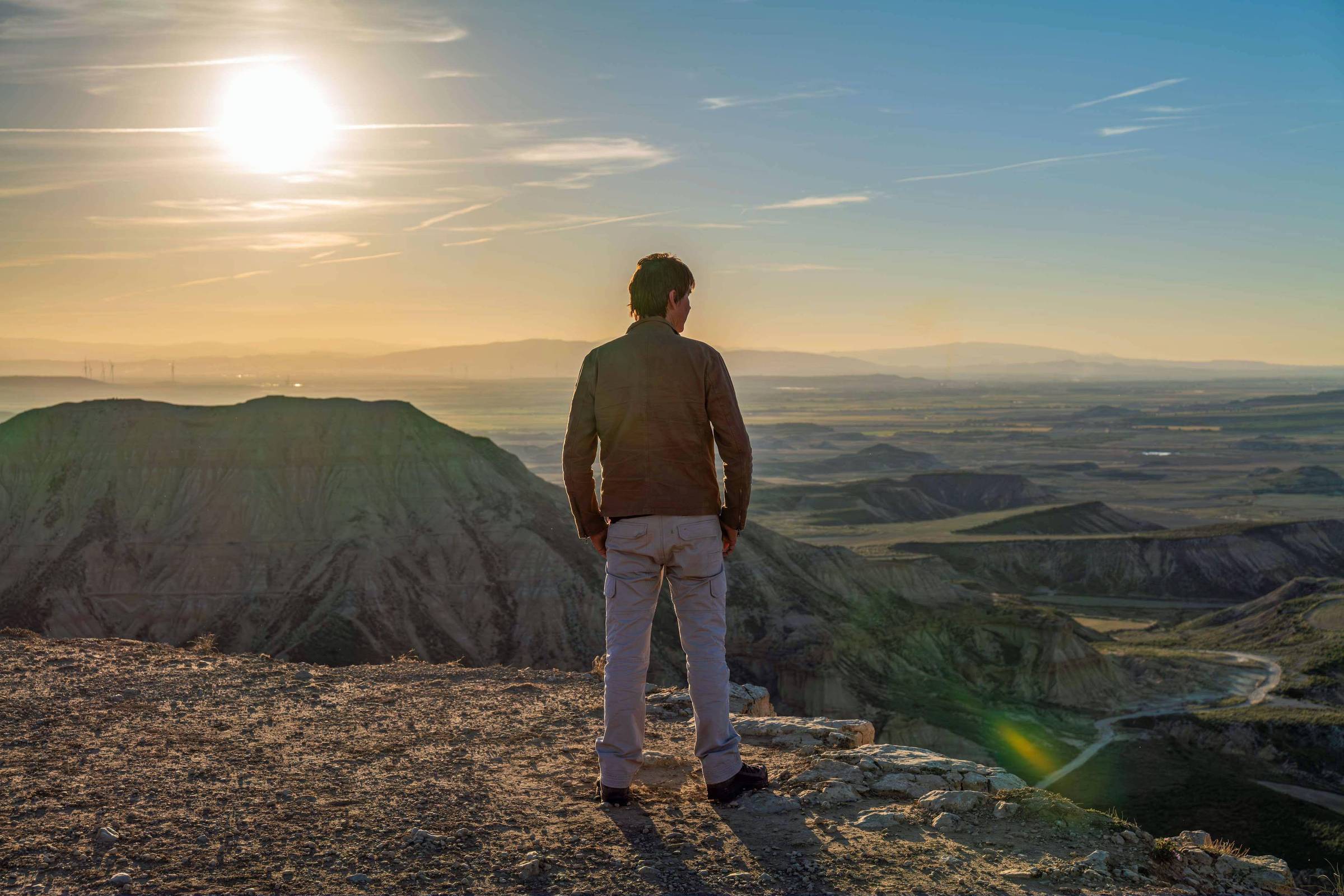Professor Brian Cox says he is ready and has the courage to go where no other British TV presenter has gone.
“I haven't raised any money yet, and I haven't convinced anyone to give me a ticket” to space, he explains.
But if Elon Musk, owner of the American space company SpaceX, called it, “I would say… amazing, come on!” he adds.
Space travel is something we could all do in the future, according to Cox, the UK's best-known particle physicist.
Speaking ahead of the premiere of his new BBC Two series about the solar system, he said he wanted the human race to go further.
He says progress made by some commercial space companies means there is potential to transform into a multiplanetary and interstellar civilization.
Those who reached space before Cox include billionaire businessman Jared Isaacman and the crew of SpaceX's Polaris Dawn spacecraft.
Isaacman made history last month when he became the first private astronaut to walk in space. NASA said the mission represents a “giant leap forward” for the commercial space industry.
Cox sees cooperation between government agencies, such as NASA, and private companies, such as SpaceX, as positive. He says it's essential that we have cheap and reliable access to space.
“I really see that our civilization needs to expand beyond our planet for many reasons,” he says.
Space company Blue Origin — the brainchild of billionaire and Amazon founder Jeff Bezos — already envisions a future in which people live and work in space, with industries deemed harmful to the planet being moved out into the cosmos.
There are limited resources on Earth and the planet is being damaged by “civilization's thirst and need for more resources,” says Cox, making it necessary to consider becoming a multi-planet civilization.
Exploring the universe's resources, such as exploring asteroids, may sound like science fiction, but he says: “It's very important that we do it, and as quickly as possible.”
Whether there is the political skill to achieve this as a civilization is another story, he says. But he says he believes it is our duty to explore our galaxy, the Milky Way, which is filled with hundreds of billions of stars.
There is so much to explore in our solar system alone. In addition to the Sun, there are eight planets, five officially named dwarf planets, hundreds of moons, thousands of comets, and more than a million asteroids.
If I had to hazard a guess, Cox says we're likely the only advanced civilization in the Milky Way right now, and perhaps the only civilization to ever exist in the galaxy.
“If that's true, then our expansion beyond this planet becomes an obligation. Because if we don't, no one will. If we don't go to the stars, no one will ever go to the stars in this galaxy.”
“So it becomes very important to start taking those first steps.”
Mars and the Moon are the only places Cox can imagine seeing someone visit and begin building a permanent presence in the relatively near future.
Although stadium-sized asteroids have passed through the solar system, it is believed that the greatest current danger to Earth is actually its human inhabitants.
“If there's anything that's going to destroy us, it's probably going to be us,” he says, adding that the possibility of an asteroid hitting Earth is taken more seriously now than when he started presenting TV shows more than 15 years ago.
“At some point, we'll have to move one,” he says.
In his new series, Cox explores events occurring in space through cutting-edge missions. In October, NASA's Europa Clipper rover will set out on a five-and-a-half-year journey to Jupiter, exploring whether the planet's icy moon, Europa, could harbor conditions suitable for life. Scientists believe that Europa contains liquid water in the form of a large saltwater ocean beneath its icy crust.
But what would life be like on the icy moon Europa if the conditions were right?
“Simple life would be single-celled life at best, or something a bit like single-celled life,” Cox says. “We don’t expect multicellular life there, partly because it took so long.” To evolve here on Earth.”
It has been more than ten years since Sir David Attenborough named Cox his natural successor. So, is he ready to take on this role?
“I'm very happy that he doesn't need a successor at the moment, he's making more offers than me,” says Cox.
When it comes to Sir David's career, he says it's not possible for someone who invented this type of music to succeed.
“You can't have a successor because he was the first to do it. It's like saying, 'Who will be Neil Armstrong's successor as the first man to set foot on the moon?'


